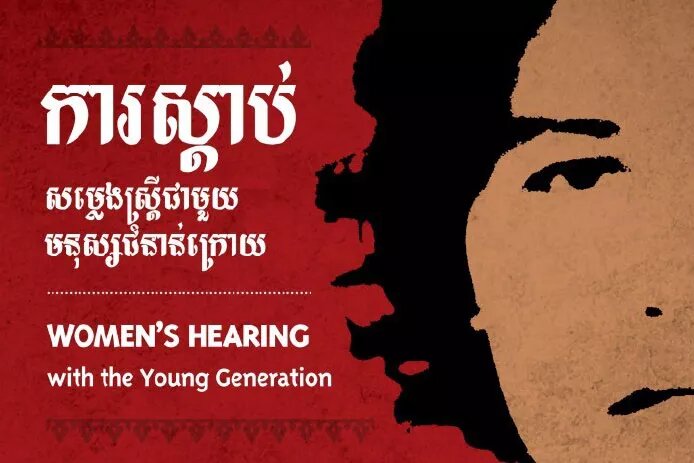
INTRODUCTION
The Khmer Rouge regime, as the Cambodian people and the world have come to know, was a genocidal regime that killed almost two Million Cambodians between 1975 and 1979. This regime has been considered as the darkest chapter of the Cambodian history. During that era, Cambodian people, especially those living in the capital of Phnom Penh and in various towns across the country were forcibly transferred to remote areas of various provinces – where they were to perform farming. In general, the Khmer Rouge forced the people to overwork in return for extremely limited food that was barely enough. Moreover, throughout the period, the people faced bitter tragedies and grave and brutal violations of their rights. These include violations of the right to live, the right to choose their own spouse, and accusations against innocent people of being enemies who were subsequently tortured and executed. Nonetheless, one form of violence committed by the Khmer Rouge is still neglected – gender-based violence.
Gender-based violence is a form of violence committed against an individual on the basis of his or her gender. The word “gender” is not used to refer to the person’s sex (i.e. if the person was born a male or female), but “gender” refers to the state of mind created in a society regarding men and women (roles and behavior deemed as appropriate in that society and values placed on men and women, boys and girls).
Gender-based violence encapsulates physical, sexual and psychological violence against the victim. Such violence can take the form of intimidation, assault, domestic violence, rape and sexual assault, psychological and economic violence, violence in relation to dowry (the bride pays dowry to her husband for their marriage), violence in relation to exploitation, sexual harassment, threats or intimidation at the workplace or school, trafficking of women, sex exploitation, forced marriage, forced pregnancy, and forced prostitution.
Various research studies, especially the research by Professor Kasumi Nakagawa and the Cambodian Defenders Project, show that there were cases where gender-based violence was committed during the Khmer Rouge regime. These cases include among others rape, rape and murder, gang rape, and rape through means of forced marriage.
However, for the victims although more than 30 years have passed, their sufferings from such violence remain while true justice has not yet been achieved for them as victims. In addition, it is most disappointing that gender-based violence during the Khmer Rouge regime does not really receive attention from the Extraordinary Chambers in the Courts of Cambodia, the Royal Government, and relevant organisations. Especially, the youth has not come to know about this issue. In this effect, the Cambodian Defenders Project has created the 2013 Women’s Hearing with the Young Generation on “Gender-based Violence during the Khmer Rouge Regime”. The purpose of this event is to seek justice for the victims by giving them the opportunity to reveal their secrets and to narrate their stories about gender-based violence in public. Moreover, the event provides Cambodian people (especially the young generation) ideas, new understanding and examples—so that they become informed and reflect the issue and thus partake in seeking justice for the victims of gender-based violence in the Khmer Rouge regime, as well as getting actively involved in eliminating gender-based violence today and in the future.
For full reading of this article, Please download the PDF file below: